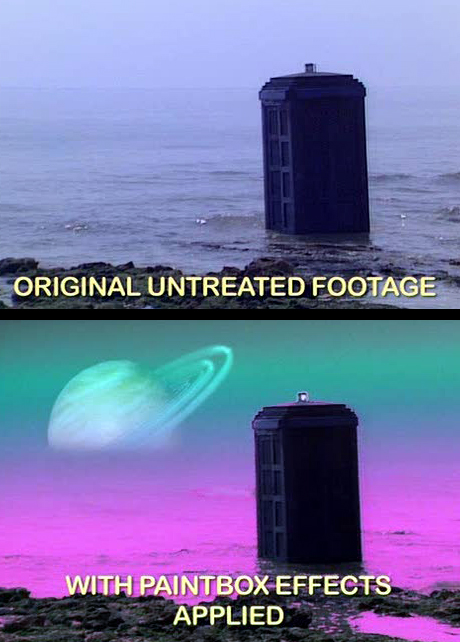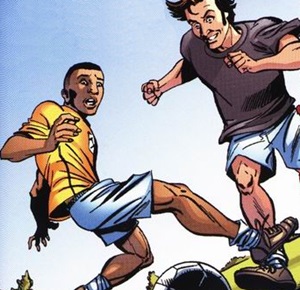Transmat:Doctor Who: Difference between revisions
No edit summary |
Eyacorkett (talk | contribs) mNo edit summary |
||
| (26 intermediate revisions by 8 users not shown) | |||
| Line 1: | Line 1: | ||
__NOTOC__ | __NOTOC__ | ||
{{template:transmat:{{PAGENAME}}}} | {{template:transmat:{{PAGENAME}}}} | ||
<div | <div id="tr-box-container" style="width:98%"> | ||
<div id="tr-box-container" class="tr-box-cols" style=margin-top:40px> | <div id="tr-box-container" class="tr-box-cols" style=margin-top:40px> | ||
<div class="tr-box one"> | <div class="tr-box one"> | ||
{{thead|The women who gave ''Doctor Who'' back to us}} | {{thead|The women who gave ''Doctor Who'' back to us}} | ||
[[file:JaneTranter.jpg|link=http://tardis.wikia.com/wiki/Transmat:Doctor_Who?file=David_Tennant_interviews_Doctor_Who_Producers_-_Doctor_Who_Confidential_-_BBC]] | [[file:JaneTranter.jpg|center|link=http://tardis.wikia.com/wiki/Transmat:Doctor_Who?file=David_Tennant_interviews_Doctor_Who_Producers_-_Doctor_Who_Confidential_-_BBC]] | ||
{{tcap|Click for video}} | {{tcap|Click for video}} | ||
Think ''Doctor Who'' is just for boys? Don't you believe it. Not only was the show's [[Verity Lambert|very first producer]] a woman, but it would never have come back without the fierce advocacy of '''[[Jane Tranter]]''' and '''[[Julie Gardner]]'''. Considering her importance to ''Doctor Who'' it's somewhat ironic that Tranter's only on-screen ''credits'' are for ''[[Torchwood: Miracle Day]]''. But Gardner, her "partner in crime", is tied only with [[Russell T Davies]] as the most prolific producer in ''[[Doctor Who]]'' history. | Think ''Doctor Who'' is just for boys? Don't you believe it. Not only was the show's [[Verity Lambert|very first producer]] a woman, but it would never have come back without the fierce advocacy of '''[[Jane Tranter]]''' and '''[[Julie Gardner]]'''. Considering her importance to ''Doctor Who'' it's somewhat ironic that Tranter's only on-screen ''credits'' are for ''[[Torchwood: Miracle Day]]''. But Gardner, her "partner in crime", is tied only with [[Russell T Davies]] as the most prolific producer in ''[[Doctor Who]]'' history. | ||
</div> | </div> | ||
<div class="tr-box | <div class="tr-box two"> | ||
{{thead|Industrial action}} | {{thead|Industrial action}} | ||
[[File:Paintbox.jpg|link=http://tardis.wikia.com/wiki/Transmat:Doctor_Who?file=BBC%2527s_Historic_Mainframe_Arrives%2521%2521_%2528Quantel_Paintbox_DPB_7000%2529_This_created_many_80s_programs%2521%2521]] | [[File:Paintbox.jpg|link=http://tardis.wikia.com/wiki/Transmat:Doctor_Who?file=BBC%2527s_Historic_Mainframe_Arrives%2521%2521_%2528Quantel_Paintbox_DPB_7000%2529_This_created_many_80s_programs%2521%2521]] | ||
{{tcap|Click for a video of a [[21st century]] geek as he takes delivery of one of the two Paintboxes used by the BBC in the 1980s}} | {{tcap|Click for a video of a [[21st century]] geek as he takes delivery of one of the two Paintboxes used by the BBC in the 1980s}} | ||
The '''[[Quantel Paintbox]]''' was a graphics workstation that allowed ''[[Doctor Who]]'' to have a primitive form of [[colourist|colour grading]] in the [[1980s]]. To find out more about the "business of show", go to '''[[:category:production information]]''', where you can read about [[colour separation overlay]], [[low loader]]s, [[telerecording]]s, [[vidFIRE]], [[rostrum camera]]s, [[2" quad]] tape, [[Ealing Studios]] and tons more.</div> | The '''[[Quantel Paintbox]]''' was a graphics workstation that allowed ''[[Doctor Who]]'' to have a primitive form of [[colourist|colour grading]] in the [[1980s]]. To find out more about the "business of show", go to '''[[:category:production information]]''', where you can read about [[colour separation overlay]], [[low loader]]s, [[telerecording]]s, [[vidFIRE]], [[rostrum camera]]s, [[2" quad]] tape, [[Ealing Studios]] and tons more.</div> | ||
<div class="tr-box | <div class="tr-box one"> | ||
{{thead|Surprising guest star}} | {{thead|Surprising guest star}} | ||
{{surprising guest}} | |||
</div> | </div> | ||
<div class="tr-box | <div class="tr-box two"> | ||
{{thead|Ex-Doctors never die, they just make audios}} | {{thead|Ex-Doctors never die, they just make audios}} | ||
The careers of the [[Fifth Doctor|Fifth]], [[Sixth Doctor|Sixth]], [[Seventh Doctor|Seventh]] and [[Eighth Doctor]]s are '''significantly''' longer [[Big Finish Doctor Who audio stories|in audio]] than on television. Check out their latest works at '''[[:category:{{CURRENTYEAR}} audio stories]]''' | The careers of the [[Fifth Doctor|Fifth]], [[Sixth Doctor|Sixth]], [[Seventh Doctor|Seventh]] and [[Eighth Doctor]]s are '''significantly''' longer [[Big Finish Doctor Who audio stories|in audio]] than on television. Check out their latest works at '''[[:category:{{CURRENTYEAR}} audio stories]]'''. | ||
</div> | </div> | ||
<div class="tr-box | <div class="tr-box one"> | ||
{{thead|The relevance of comics}} | {{thead|The relevance of comics}} | ||
Officially, only ''[[The Lodger (TV story)|The Lodger]]'' has been explicitly adapted from a comic strip — also called ''[[The Lodger (comic story)|The Lodger]]''. | Officially, only ''[[The Lodger (TV story)|The Lodger]]'' has been explicitly adapted from a comic strip — also called ''[[The Lodger (comic story)|The Lodger]]''. | ||
[[File:10MickeyFootball. | [[File:10MickeyFootball.jpg|center|link=http://tardis.wikia.com/wiki/Transmat:Doctor_Who?file=Craig_asks_The_Doctor_to_leave_-_Doctor_Who_-_BBC]] | ||
However, several stories have clearly taken material from comic strips — often those in ''[[Doctor Who Magazine]]''. ''[[The Shakespeare Code (TV story)|The Shakespeare Code]]'' contains a good amount of material from ''[[A Groatsworth of Wit (comic story)|A Groatsworth of Wit]]'', and the notion of the Doctor absorbing the [[time vortex]] in order to spare a [[companion]] was explored in both ''[[The Parting of the Ways (TV story)|The Parting of the Ways]]'' and ''[[The Flood (comic story)|The Flood]]''. | However, several stories have clearly taken material from comic strips — often those in ''[[Doctor Who Magazine]]''. ''[[The Shakespeare Code (TV story)|The Shakespeare Code]]'' contains a good amount of material from ''[[A Groatsworth of Wit (comic story)|A Groatsworth of Wit]]'', and the notion of the Doctor absorbing the [[time vortex]] in order to spare a [[companion]] was explored in both ''[[The Parting of the Ways (TV story)|The Parting of the Ways]]'' and ''[[The Flood (comic story)|The Flood]]''. | ||
</div> | </div> | ||
| Line 33: | Line 33: | ||
But Baverstock wasn't the only '''[[:category:BBC executives|BBC executive]]''' to have a profound impact on the development of ''Doctor Who''. Make sure you read about [[Lorraine Heggessey]], [[Mark Thompson]], [[Danny Cohen]], [[George Entwistle]], [[Tony Hall]], [[Shaun Sutton]], [[Sydney Newman]] and others. </div> | But Baverstock wasn't the only '''[[:category:BBC executives|BBC executive]]''' to have a profound impact on the development of ''Doctor Who''. Make sure you read about [[Lorraine Heggessey]], [[Mark Thompson]], [[Danny Cohen]], [[George Entwistle]], [[Tony Hall]], [[Shaun Sutton]], [[Sydney Newman]] and others. </div> | ||
<div class="tr-box two"> | <div class="tr-box two"> | ||
{{thead|Things released on [[{{CURRENTDAY}} {{CURRENTMONTHNAME}} (releases)|{{CURRENTDAY}} {{CURRENTMONTHNAME}}]] }}{{:{{CURRENTDAY}} {{CURRENTMONTHNAME}} (releases)}} | {{thead|Things released on [[{{CURRENTDAY}} {{CURRENTMONTHNAME}} (releases)|{{CURRENTDAY}} {{CURRENTMONTHNAME}}]] }}{{:{{CURRENTDAY}} {{CURRENTMONTHNAME}} (releases)}} | ||
</div> | |||
<div class="tr-box one"> | |||
{{thead|Did you know…}} | |||
{{Doctor Who Wiki/DYK}} | |||
</div> | </div> | ||
<div class="tr-box three"> | <div class="tr-box three"> | ||
{{thead|[[{{CURRENTDAY}} {{CURRENTMONTHNAME}} (people)|{{CURRENTDAY}} {{CURRENTMONTHNAME}}]] births and deaths }}{{:{{CURRENTDAY}} {{CURRENTMONTHNAME}} (people)}} | {{thead|[[{{CURRENTDAY}} {{CURRENTMONTHNAME}} (people)|{{CURRENTDAY}} {{CURRENTMONTHNAME}}]] births and deaths }}{{:{{CURRENTDAY}} {{CURRENTMONTHNAME}} (people)}} | ||
</div> | </div> | ||
{{#ifexpr: {{PAGESIZE:{{CURRENTDAY}} {{CURRENTMONTHNAME}} (production)|R}} < 440|| | |||
<div class="tr-box two"> | |||
{{thead|Production history for [[{{CURRENTDAY}} {{CURRENTMONTHNAME}} (production)|{{CURRENTDAY}} {{CURRENTMONTHNAME}}]] }}{{:{{CURRENTDAY}} {{CURRENTMONTHNAME}} (production)}} | |||
</div>}} | |||
</div> | </div> | ||
</div> | </div> | ||
{{reflist}} | {{reflist|2}} | ||
{{cache clearer}} | |||
Latest revision as of 08:24, 14 July 2024
Verity Lambert, the first producer of Doctor Who, was born in London on 27 November 1935. She served as producer from An Unearthly Child to Mission to the Unknown. Her work on Doctor Who was the first time she had been a full producer and was one of the first times a woman had such a role in television. Lambert died on 22 November 2007, the very day before the forty-fourth anniversary of the show's debut.
Think Doctor Who is just for boys? Don't you believe it. Not only was the show's very first producer a woman, but it would never have come back without the fierce advocacy of Jane Tranter and Julie Gardner. Considering her importance to Doctor Who it's somewhat ironic that Tranter's only on-screen credits are for Torchwood: Miracle Day. But Gardner, her "partner in crime", is tied only with Russell T Davies as the most prolific producer in Doctor Who history.
The careers of the Fifth, Sixth, Seventh and Eighth Doctors are significantly longer in audio than on television. Check out their latest works at category:2024 audio stories.
Officially, only The Lodger has been explicitly adapted from a comic strip — also called The Lodger.
However, several stories have clearly taken material from comic strips — often those in Doctor Who Magazine. The Shakespeare Code contains a good amount of material from A Groatsworth of Wit, and the notion of the Doctor absorbing the time vortex in order to spare a companion was explored in both The Parting of the Ways and The Flood.
Donald Baverstock was the BBC executive who set the the wheels in motion that eventually led to the creation of Doctor Who. Essentially the original commissioner of the programme, he hired Sydney Newman and later imposed a sense of financial responsibility upon producer Verity Lambert.
But Baverstock wasn't the only BBC executive to have a profound impact on the development of Doctor Who. Make sure you read about Lorraine Heggessey, Mark Thompson, Danny Cohen, George Entwistle, Tony Hall, Shaun Sutton, Sydney Newman and others.- 1967
- Episode six of The Abominable Snowmen premiered on BBC1.
- Part two of the TV Comic story The Faithful Rocket Pack was published.
- 1972 - Part two of the TV Action comic story Steelfist was published.
- 1978 - Part two The Stones of Blood premiered on BBC1.
- 1981 - "The Forest of Fear" was repeated on BBC2.
- 1989 - The Incredible Hulk Presents comic story Technical Hitch was published.
- 2002 - The Infinity Race was published by BBC Books.
- 2009 - DWDVDF 22 was published by GE Fabbri Ltd.
- 2010
- A Shard of Ice were released by AudioGO.
- A Town Called Fortune was released by Big Finish Productions.
- DWA 191 was published by BBC Magazines.
- 2014 - The Story of Fester Cat was published by The Berkley Publishing Group.
- 2015
- The Ninth Doctor #5, The Eighth Doctor #1 and The Eleventh Doctor Year Two #2 were published by Titan Comics.
- TCH 71 was published by Hachette Partworks.
- 2016 - Toby Hadoke's Who's Round 192 was released online.
- 2018 - The Tsuranga Conundrum premiered on BBC One.
- 2019 - Sil and the Devil Seeds of Arodor was released on DVD and Blu-ray by Reeltime Pictures.
- 2020 - Blue Boxes was released by Big Finish.
- 2021 - K9 Audio Annual and The Time Travel Collection were released by BBC Audio.
- 2022 - Origins was published by Titan Comics.
- ... that the televised episode Blink began its life as a Christmas-themed short story in the 2006 annual called, What I Did on My Christmas Holidays by Sally Sparrow?
- ... that Professor Saurian is a dinosaur-like sentient whom the Eleventh Doctor and Amy Pond have met in several Doctor Who Adventures stories? (COMIC: Extinction Event, Dinosaurs in New York! and Dino World)
- ... that the fob watch carried by the Seventh Doctor was the same one that the First Doctor regularly used? (PROSE: All-Consuming Fire)
- ... that the Tenth Doctor temporarily travelled with the "last" dodo bird, and — much to Martha Jones' confusion — named it "Dorothea"? (PROSE: The Last Dodo)
- ... that Baaraddelskelliumfatrexius Beasts were giant, squirrel-like creatures that Raxacoricofallapatorians hunted to extinction? (TV: The Revenge of the Slitheen)
- 1971 - Actor Robyn Moore was born.[1]
- 1982 - Actor Talfryn Thomas died.[2]
- 1998 - Actor Bear McCausland was born.[3]
- 2017 - Composer Dudley Simpson died.[4]
- 1967 - Episode three of The Ice Warriors was recorded at Lime Grove Studios D. (TCH 11)
- 1969 - Location filming for Spearhead from Space took place. (REF: Doctor Who The Handbook: The Third Doctor)
- 1976 - Pre-filming for The Robots of Death took place at Ealing Studios. (REF: Doctor Who The Handbook: The Fourth Doctor)
- 1979 - Studio filming for Shada took place at BBC Television Centre studio 3. (REF: Doctor Who The Handbook: The Fourth Doctor)
- 2005 - Big Finish's Sarah Jane Smith audio story Snow Blind was recorded at the Moat Studios.
- 2009 - Big Finish's audio adaptation of the unproduced TV story Point of Entry was recorded at the Moat Studios.
- 2019
- Big Finish's audio anthology Thin Time / Madquake was recorded at the Moat Studios.
- Big Finish's audio adaptation of Revenge of the Cybermen's original storyline was recorded at Audio Sorcery.
- 2023 - The #DoctorDonnathon event took place at the Genesis Chamber.





